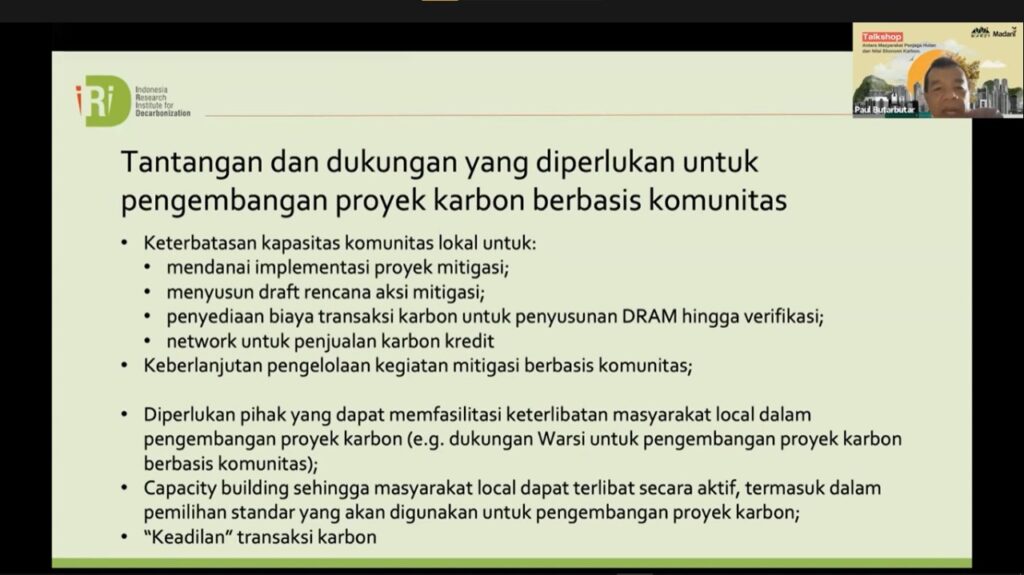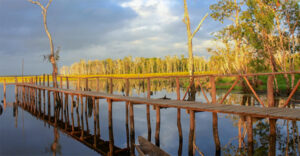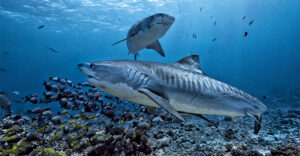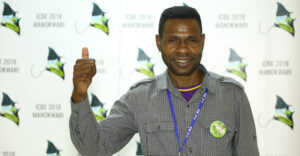
In the social forestry scheme, forest defender communities are not only seen as benefit recipients from the policies. If there is good management, communities can manage and protect forests to be more sustainable also reducing Greenhouses Gas (GHG).
This statement was said by Program Coordinator of Conservation Communities Indonesia (KKI) Warsi, Emmy Primadona, in a webinar entitled “Forest Defender Communities Roles in Promoting Carbon Economic Values” on April 6, 2022.
KKI Warsi has already assisted social forestry practice in Bujang Raba, Jambi Province and some areas in West Sumatra Province. Social forestry in West Sumatera is reported to increase forest coverage up to 19 percent.
Read also: Microplastic and Plastic Waste Threatening Life
By Presidential Decree Number 98/2021, Indonesian Government set national commitment in tackling global climate by reducing 29-41 percent of GHG emissions by 2030. To reach that goal, community involvement becomes important. Social forestry scheme is one example.
“In our perspective, social forestry has highly contributed to carbon emission reduction,” Emmy said.
Warsi reports (2020) shows that social forestry in Bujang Raba, Jambi Province, can slow down the deforestation rate up to 100 hectares and reduce the carbon emissions up to 278,000 CO2eq. This social forestry that had started since 2013 has also already been certified by Plan Vivo, one of the organizations which promote carbon credit.
Read also: Scrutinizing Indigenous People Position and Customary Rights in State Constitution
In early 2018, 6,000 tons of carbon sales were reported. Carbon sales are shared to the communities in the form of capacity building, education scholarship, economic incentives, patrol, and forest enrichment.
Emmy explained one of the best practices of the social forestry scheme in Bujang Raba landscape. Communities divided forest areas into protection and utilization zones. Protection zones serve as the water catchment and a buffer to reduce the possibility of natural disasters. Meanwhile, the utilization zone serves as the public cultivation to meet daily needs through community gardening.
In addition to these two zones, Warsi interventions utilize non-forest areas as an alternative income through gradual commodities such as cacao, rubber, dogfruit, and some other fruits.
Read also: Recognition Process of Customary Land and Indigenous People in West Papua Now Shortened
Ministry of Environment and Forestry’s Head of Budget Sub-directorate , Agus Rusly, explained the reasons and purposes of the Presidential Decree Number 98/2021. Other than controlling GHG emissions, the purpose of that decree is to improve national defense, regions, and communities from climate change risks.
Agus explained the community role as mandated by the presidential decree. Chapter 28 paragraph 5 mentioned that communities play a role in reducing GHG emissions through mitigation that provides sector and sub-sector contributions. One of the examples is the scheme of performance-based payments.
“Now there have been ongoing programs already. One is in Jambi Province and the second in East Kalimantan. Related to the performance-based payments, communities living nearby or in the forest play a role and have a crucial portion to consider in performance-based schemes,” Agus said.
Read also: STS Mogatemin Participant: The Knowledge Very Priceless
Responding to this, Indonesia Research Institute for Decarbonization (IRID) Co-Founder, Paul Butarbutar, explained the challenge for the communities in carbon project development. According to him, some of the challenges are the limitation of community capacities like project budgeting, mitigation action plans drafting, and carbon sales networking.
Paul emphasized that community capacity building is needed to run carbon projects properly. “Therefore, stakeholders which can facilitate community involvement in carbon project development are needed,” Paul said.
Editor: Leo Wahyudi, Nur Alfiyah, Lutfy Putra







